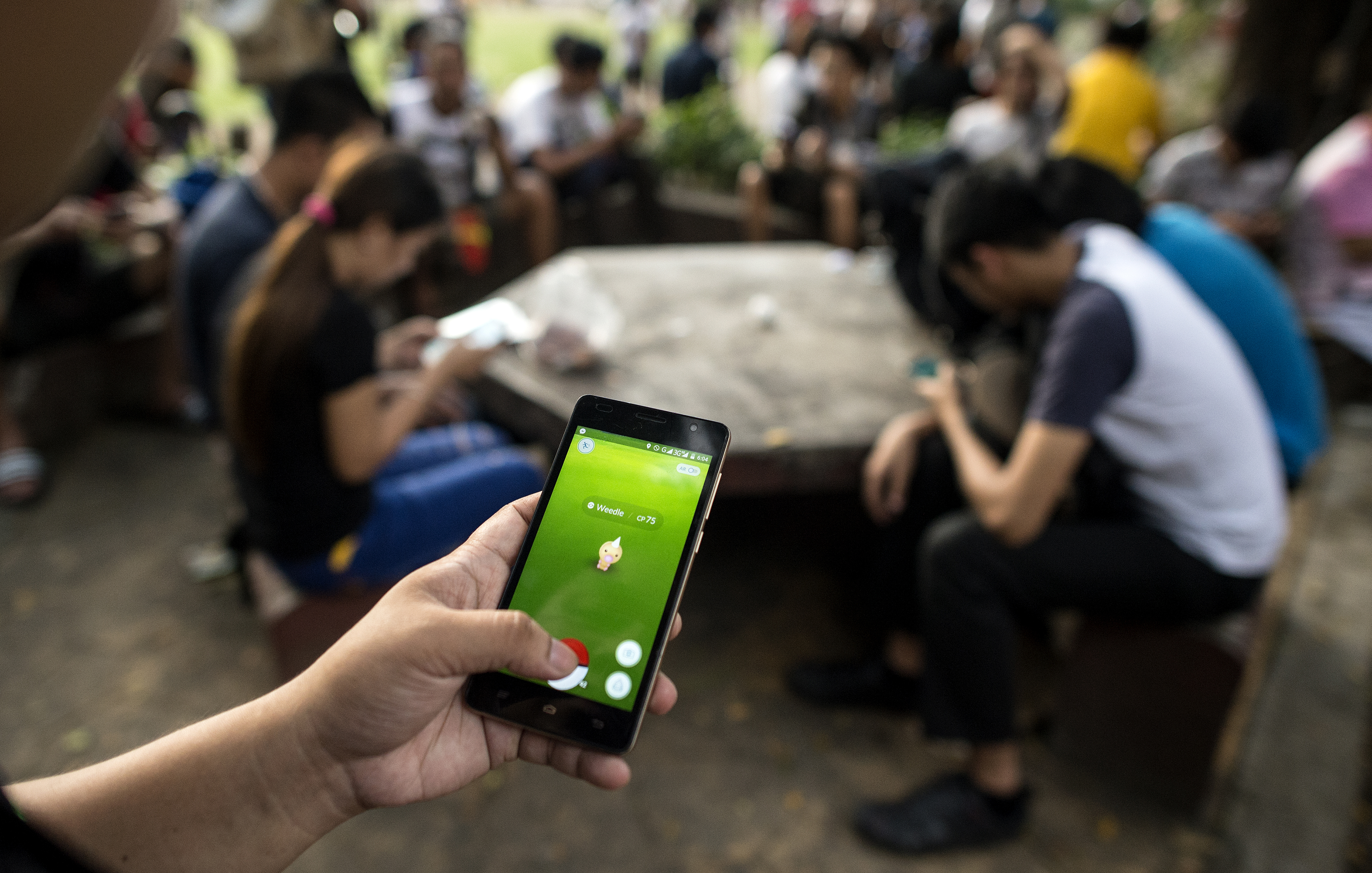
PARIS, France (AFP) — It has been hailed as a revolutionary way to get people moving, using smartphones to pursue cartoon creatures through city parks and streets on foot, instead of taking the car or metro.
But has Pokemon Go made people more active and healthy? A study Wednesday reported mixed success.
In the first week of playing the game, people took 955 additional steps per day on average — equaling nearly half the World Health Organization’s recommended physical activity level, researchers found.
But this soon petered out, with activity levels “back to pre-installation levels” of around 4,250 steps per day by week six of playing the game which has become a global phenomenon.
“The results suggest that the positive health impact of Pokemon Go is moderate and diminishes after six weeks of playing,” said a statement from the Harvard TH Chan School of Public Health, whose researchers conducted the study.
The team measured daily walking among a group of 1,182 adults aged 18-35 in the United States. All used an iPhone 6 smartphone, which automatically records the number of steps you take while carrying the device.
They compared the average number of steps taken per day for four weeks prior to downloading Pokemon Go, and for six weeks thereafter.
Pokemon Go is an augmented reality game which uses overlaying graphics to get people chasing cute cartoon creatures that appear in their vicinity, as seen through their phone camera.
The game has been downloaded over 500 million times since its launch in July, according to the study published in the journal BMJ.
The study did not comment on the reasons for the relapse.
“We are only at the beginning of understanding how augmented reality gaming can potentially be beneficial to health,” said Katherine Howe, who co-authored the study.
“They give people a reason to go outside, walk, and socialise. Imagine the potential of developing these games to not only increase physical activity but to also boost mental well-being, mood, cognitive abilities and social interaction,” she added.
The study did point out the potential risks, such as traffic accidents caused by people distracted while playing with their phones.
One weakness of the research was that it did not register any physical exercise done while not carrying the phone.
A video explaining the study can be watched here: http://www.bmj.com/content/355/bmj.i6270
© 1994-2016 Agence France-Presse








